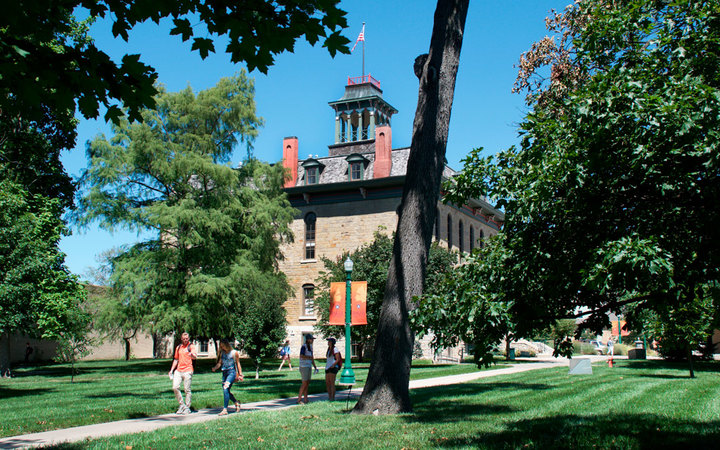
Title IX Coordinator
Dr. Cassy Bailey
Vice President for Student Affairs and Enrollment Management
About
Are You Experiencing the Sophomore Slump?
Do you find yourself wondering . . .
- What am I doing here at Baker University?
- Why do I have more questions now than when I first got here?
- Who are these people I hang around with that I thought were my friends?
- Why am I majoring in this if I don’t even like it?
- Why am I constantly overwhelmed?
- Why do I only find the negatives in my life?
- Why don’t I find time to relax?
- Why am I so uncertain about my future?
- Why am I not having as much fun as last year?
- Why am I ready to cry if the smallest thing goes wrong?
- Why do I feel like my parents are constantly pressuring me to know what I want to do with my life?
- Does everyone have this all figured out but me?
- Why am I so unmotivated or anxious or both?
If you have asked three or more of these questions since arriving at Baker this semester, you could be suffering from Sophomore Slump.
The Dean of Students and entire Office of Student Affairs team work to make Baker your home away from home. Sophomores experience a whole new set of stressors as they return to the college campus.
- Unlike freshman, you receive fewer warnings about the dos and don’ts of college life.
- You are expected to know how things work.
- You are pushed to declare a major, find an internship and decide whether or not to study abroad.
No wonder some students fall into the Sophomore Slump.
Now What?
Baker offers resources and strategies to cope with the Sophomore Slump.
3 Areas Cause Sophomores
the Most Stress
1. Academics
- Pressure to choose a major
- Taking upper-level classes with juniors and seniors who may have formed closer relationships with the professor
2. Personal
- Uncertainty about the direction of your life
- Feeling guilty about the time and money going into college when you are uncertain about the direction of your life
- Changing and challenging previously held family values
3. Relationships
- Ties to home and old friends decrease
- Desire for intimacy increases
- Desire to go home on breaks decreases

Coping with the Sophomore Slump
If you think that you might be experiencing the Slump, try these coping methods.
Take care of your general physical well-being.
- Eat regularly
- Sleep regularly
- Exercise
Talk to your academic advisor.
- Explore classes that look fascinating.
- Take a class for fun or self-expression.
- Make a personal connection with a faculty member.
- Explore options for academic support.
Find interesting extracurricular activities.
- Volunteer.
- Join an interest group.
- Renew a high school activity such as intramurals or band.
Talk to someone from the Counseling Center.
- Sophomore Slump is normal.
- Determine whether your schedule is too demanding.
- Identify underlying stressors.
- Learn means to assert your growing identity.
Visit Career Services.
- Explore opportunities.
- Ask questions.
- Talk with others who have experienced the Slump.
Talk with the University Minister about Spiritual Life.
- Explore meaning and purpose.
- Develop a meaningful relationship.
- Increase interaction with college personnel and services.
Explore Fraternity and Sorority Life.
- Learn leadership skills.
- Form lifelong friends.
Meet with the Dean.
Throughout the semester, Dean Bailey will reach out to meet.
- This is a time to catch up on your vocational plans and aspirations as well as to answer questions you may have.
- Watch your email inbox for an invitation to a short meeting.
Strategies
Use these strategies to thrive during your sophomore year:
- Explore what really matters to you.
- Make a plan to sustain or improve your well-being: mental, physical, spiritual, and social.
- Develop a relationship with an academic advisor to help create a plan for your academic goals.
- Connect with a faculty member outside of the classroom.
- Declare a major that aligns with your interests, values and future goals.
- Deepen your experience within an extracurricular activity that is important and meaningful to you.
-
Pursue an experience that will build on your coursework and apply your skills outside of the classroom:
- Participate in an internship.
- Explore service learning and leadership experiences.
- Investigate study abroad options.
- Participate in a career-building exercise that will prepare you for your professional goals.


